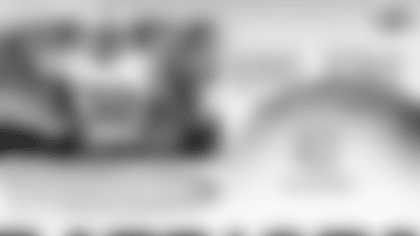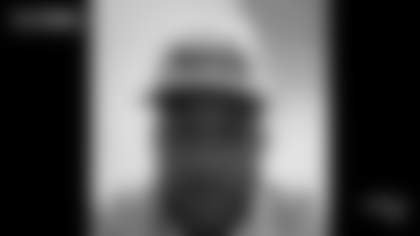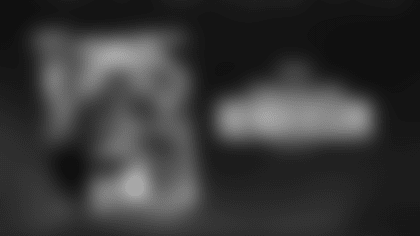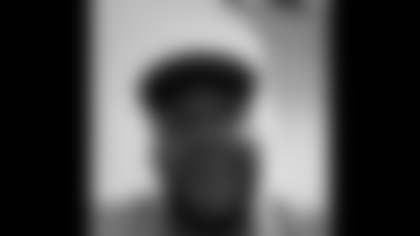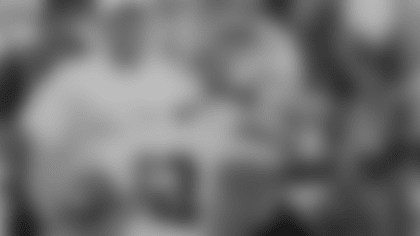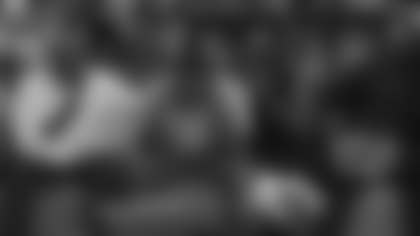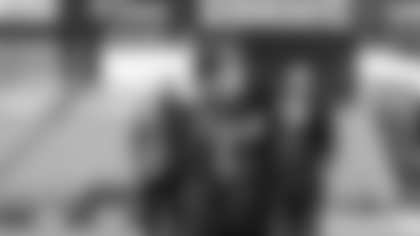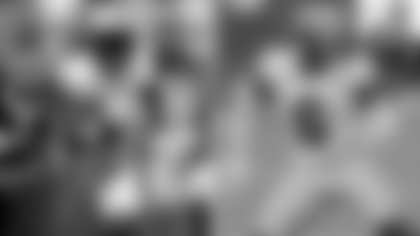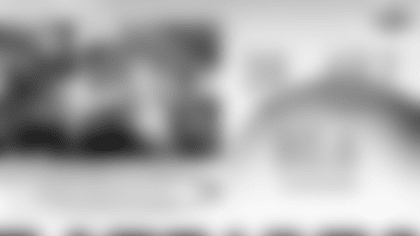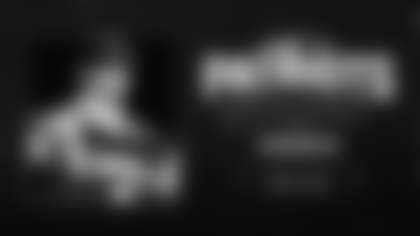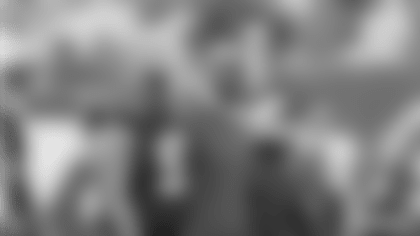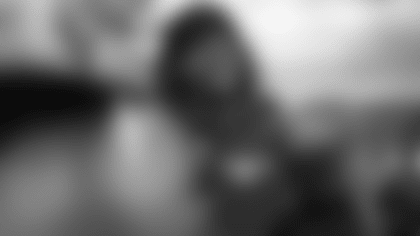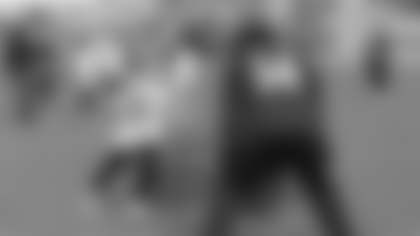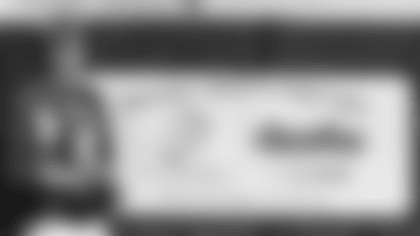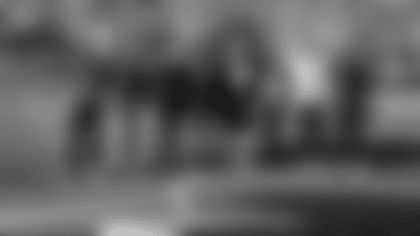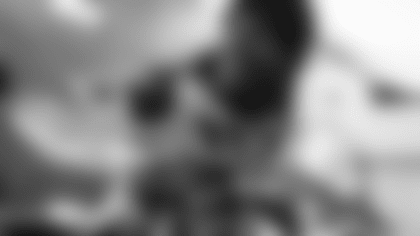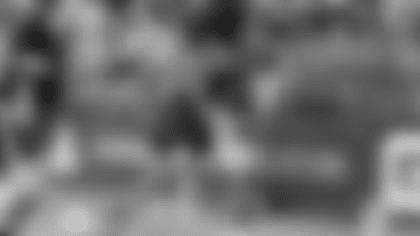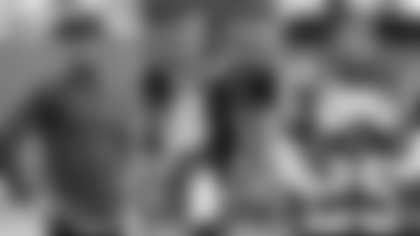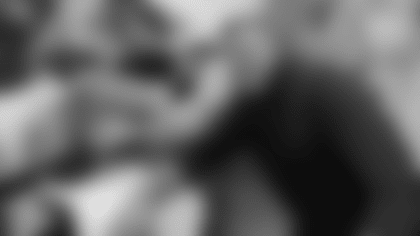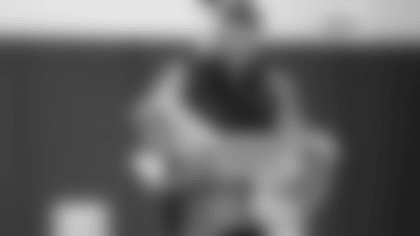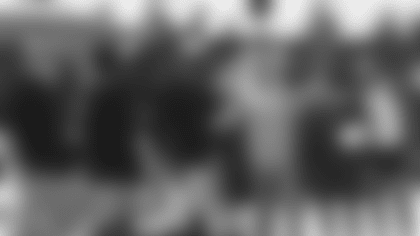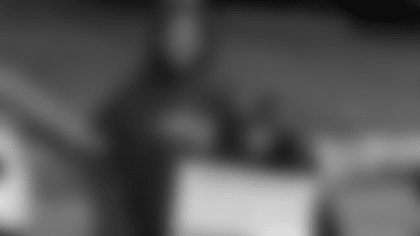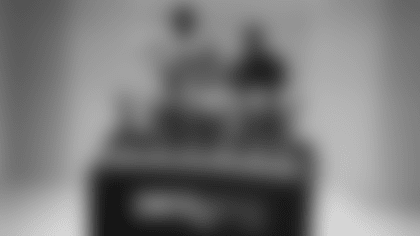There is no one single moment that stands out to Dr. Bryan Beaubrun that he can credit for wanting to pursue sports medicine. There was no big epiphany or dramatic realization.
Really, he was just an athlete trying to stay close to sports as long as he could.
"I knew I was not going to become a professional athlete, so what could I do to kind of stay close to the game and do something that I love," Beaubrun said, reflecting on his journey during the last week of his fellowship with the New England Patriots medical staff.
"I kind of boiled it down to the possibility of doing orthopedics once I realized I could be a team doctor and take care of athletes. It was just having that mindset of enjoying science and sports."
In other words, he had to see that path as an option before he could aspire to it – which, really, is the purpose of the NFL’s Diversity in Sports Medicine Pipeline Initiative in the first place.
He had heard about the opportunity through friends at the Howard University College of Medicine who had participated in the pilot program last season and learned that for 2023, the NFL was expanding it league-wide to double the number of students who could complete these clinical rotations.
Dr. Beaubrun was accepted and randomly placed with the Patriots – a comfortable coincidence.
Not only was he familiar with the area after completing his Master's degree at Boston University, but through his older sister, he happened to have a personal connection to New England legend Devin McCourty and the three-time Super Bowl champion's wife, Michelle.
"I texted Devin immediately and told him I got accepted for the position and was placed in New England," Dr. Beaubrun said. "We started coordinating when he could meet up right away. I was super excited because this was the first year the Patriots were participating in this program, so there was a lot of flexibility in terms of what I would be able to do.
"Not only that, but there are a lot of people who Devin is close to within the organization so that added element of it really feeling like a family just added to the warmth everyone had towards me. Mr. (Jim) Whalen and everyone just made it comfortable and a good learning environment. I didn't feel out of place, just welcomed in as soon as I stepped through the door. I love that."
It was similar, he says, to the feeling of arriving at Howard for the first time for his medical school interview.
He had great mentors from Boston University and the University of Virginia, where he completed his undergraduate studies – but as he realized while looking at different medical schools to apply to, he never had any mentors who looked like him.
Dr. Beaubrun's parents immigrated to the United States from Haiti to provide their family with better opportunities. But even with those endless possibilities in front of him, Dr. Beaubrun didn't have a lot of guidance when it came to finding a career. Unlike kids his age who were born here, his parents couldn't help him much when it came to college prep and applications.
He didn't quite realize you could be a physician for a professional sports team, but by pursuing his passion for sports and science, he realized his dream organically.
You don't know what you don't know, but he had a feeling that if he went to Howard, among the 107 Historically Black Colleges and Universities throughout the country, Dr. Beaubrun knew he'd have a community that would take him in to help fill those gaps.
"I show up for my interview in a suit and tie, and I'll never forget, there were some upperclassman students studying who noticed me," Dr. Beaubrun reminisced.
"They saw me looking lost and came up to me, asked a few questions, and found out I was interviewing that day. They began to coach me up, right on the spot – fixed my tie and made sure I was well put together. In that moment, in that instance, it kind of solidified the notion I previously had about being in a place where people look like you and have a shared experience. When I stepped in there they immediately treated me like family. Howard was a community that wanted me to succeed. I felt comfortable and at home. It's important to have mentors who look like you, and also important to have a diverse group of mentors because they can all give you different perspectives and data points to help you form a more complete picture."
Medicine, as noted by Dr. Beaubrun, is such a human-facing profession. It deals with someone's health. In some cases, it's life and death, making it all the more important to have that diversity of perspectives and experiences.
It's why the NFL's Diversity in Sports Medicine Pipeline Initiative exists.
"This program, it's kind of cliche, but the saying is that in order to dream something, you need to see it – some iteration of that," Dr. Beaubrun said.
"Within this program, you really get to experience and see the day-to-day of what it means to be a team doctor for a professional organization – what goes into that, what logistical things you need to take account for, and everything you have to strive for. There are a very select few who get to be team physicians, and being able to see that position and understand what goes into it and make connections of how I can one day be in a position like that in the future – what this program provides is crucial. It's essential. It allows so many doors to be opened."
Dr. Beaubrun gained invaluable insight and perspective during his month in New England. He was a sponge to not only the orthopedics team, but also spent considerable time with the team's dieticians, psychologists, strength and conditioning staff, physical therapists, and spiritual leaders.
Observing every modality of what goes into developing, rehabbing, and maintaining a professional athlete, even he was surprised by all it takes.
"The only thing I think I didn't do was go write up a play with the coaches, but outside of that, I pretty much covered my bases and tried to be as exhausted as I could learning," Dr. Beaubrun said.
"I really respect not only the athletes but also all the supporting staff. They don't leave the facility all day. That's just something I never really took into account. Everyone is in early and out late – I thought that only residents and med students had crazy hours like that and the rest of the world was living normally. The players too, they're in there putting in so much work which I think probably goes unnoticed by the general public. Even on days off, it's literally 24/7 when they're in season. I think that was the biggest surprise for me to see that up close, but again, it's kind of the family aspect of the organization. It's that buy-in mentality that they're working towards their goals: to perform well and to win games, you know? It's not just players and coaches, but the staff and team doctors also buying into that."
He says both team physician Dr. Scott Martin and head athletic trainer Jim Whalen were essential in his learning and development, but even beyond the technical stuff, he learned a lot from the culture.
Dr. Beaubrun watched how players like Matthew Judon and Kyle Dugger, from smaller schools, were embraced as stars in New England. It showed him that if you have the skills and acumen, you can make it anywhere – in professional football and medicine – no matter your background where you went to school.
It was a powerful experience. He was sure to make the most of it, but wanted to ensure it wasn't only him who would benefit. Now that he's had a peek at his dream job, he's hoping to be a bridge for those who will come after him.
Dr. Beaubrun's time in New England may have come to an end for now, but Dr. Martin and Whalen both agreed to visit him and speak with his classmates at Howard. He came in with the intention of being a team doctor one day, and that desire has only intensified.
"I think that dream has been amplified even more," Dr. Beaubrun said.
"This has been an amazing opportunity. I've made connections that will last a lifetime and I'm forever grateful for this to be honest."


